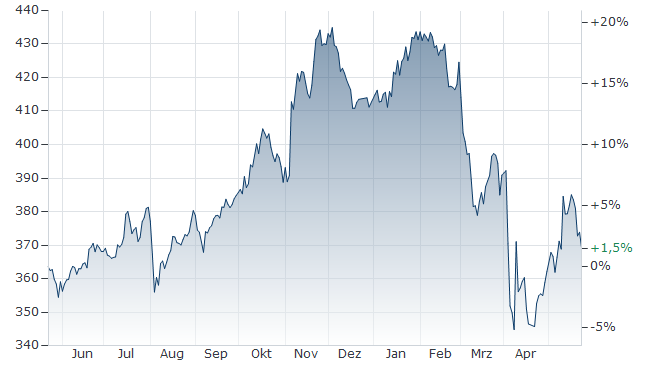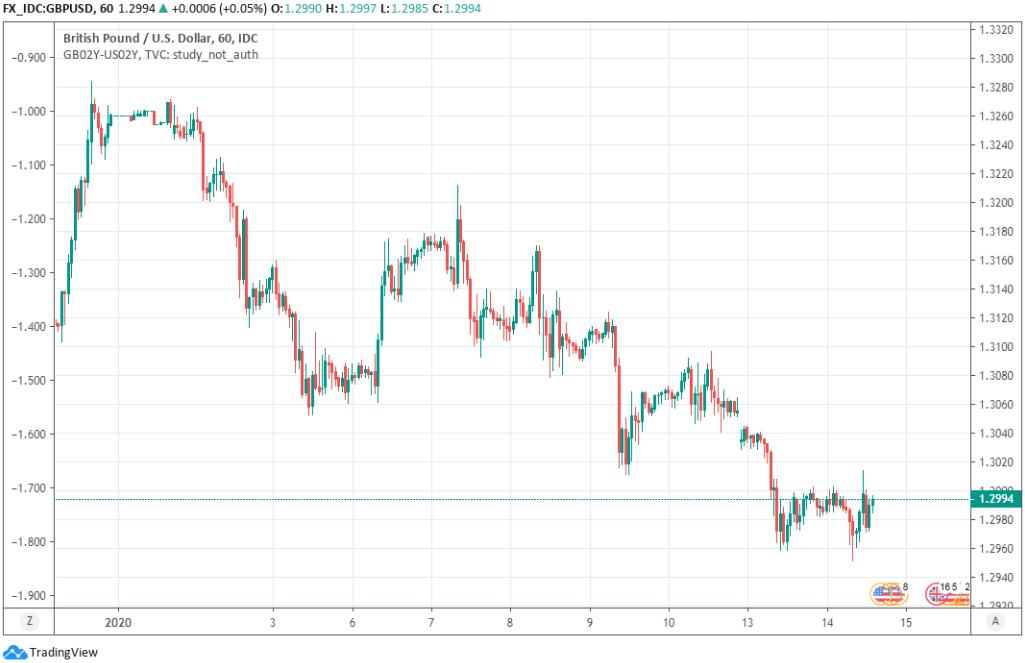Understanding The Value Of Middle Management In Modern Organizations

Table of Contents
Bridging the Gap Between Leadership and Frontline Employees
Middle managers serve as a crucial link, connecting senior leadership's strategic vision with the day-to-day operations of frontline teams. This bridging function is vital for organizational success and effective middle management is key to its smooth operation.
Effective Communication and Information Flow
Middle managers act as a vital communication link, translating strategic directives from upper management into actionable plans for frontline teams and vice versa. This two-way communication is essential for ensuring everyone is aligned and working towards the same goals.
- Translating complex strategies into clear, concise goals: They break down complex, high-level strategies into manageable tasks and objectives that frontline employees can understand and execute.
- Gathering feedback from employees and relaying it to senior leadership: They act as a conduit for employee feedback, ensuring that the voices of frontline workers are heard and considered by upper management. This allows for a more responsive and adaptive organizational culture.
- Ensuring consistent messaging across the organization: They help maintain a consistent message across all levels of the organization, preventing confusion and ensuring everyone is on the same page.
- Identifying and addressing potential communication bottlenecks: They proactively identify and resolve communication issues, ensuring smooth information flow throughout the organization. This improves overall efficiency and reduces misunderstandings.
Fostering Collaboration and Teamwork
Effective middle managers are adept at building strong teams and fostering a collaborative work environment. They go beyond simply assigning tasks; they cultivate a culture of teamwork and mutual support.
- Building strong team relationships: They invest time in building relationships with team members, understanding their individual strengths and weaknesses, and fostering a sense of camaraderie.
- Resolving conflicts and mediating disagreements: They act as mediators, resolving conflicts constructively and ensuring that disagreements do not escalate into larger problems.
- Promoting a positive and productive work environment: They create a positive and encouraging atmosphere where employees feel valued, respected, and supported.
- Encouraging open communication and knowledge sharing: They foster a culture of open communication, encouraging team members to share ideas and knowledge freely. This promotes innovation and continuous improvement.
Driving Operational Efficiency and Productivity
Middle management plays a critical role in ensuring organizational efficiency and productivity. Their involvement directly impacts the smooth operation of day-to-day activities and the achievement of strategic goals.
Performance Management and Goal Setting
Middle managers are directly responsible for setting clear, achievable goals for their teams and monitoring performance against those goals. This involves implementing robust performance management systems and providing regular feedback.
- Implementing performance management systems: They establish and manage systems for tracking and evaluating employee performance, ensuring accountability and identifying areas for improvement.
- Setting SMART goals (Specific, Measurable, Achievable, Relevant, Time-bound): They work with their teams to establish clear, measurable, and achievable goals that align with the organization's overall strategic objectives.
- Providing regular performance reviews and feedback: They provide regular feedback to their team members, both positive and constructive, helping them to improve their performance and reach their full potential.
- Identifying areas for improvement and implementing corrective actions: They identify areas where performance is lacking and work with their teams to implement corrective actions.
Resource Allocation and Optimization
Effective middle managers are skilled at allocating resources effectively and optimizing workflows to maximize efficiency. This involves managing budgets, streamlining processes, and ensuring teams have the necessary tools and support.
- Efficient budget management and resource allocation: They manage budgets effectively, ensuring that resources are allocated efficiently and used wisely.
- Streamlining workflows and processes: They identify areas where workflows can be improved and implement changes to streamline processes and increase efficiency.
- Identifying and implementing process improvements: They continuously look for ways to improve processes and implement changes that increase efficiency and productivity.
- Ensuring optimal utilization of resources: They ensure that all resources, including personnel, equipment, and technology, are utilized optimally.
Developing and Mentoring Future Leaders
Middle management plays a vital role in developing and mentoring future leaders within the organization. This investment in talent is crucial for long-term organizational growth and sustainability.
Talent Development and Succession Planning
Middle managers are often the first line of contact for identifying and nurturing high-potential employees. Their input is crucial to succession planning and ensuring a pipeline of future leaders.
- Identifying high-potential employees: They identify employees with leadership potential and provide them with opportunities to develop their skills and experience.
- Providing training and development opportunities: They help employees access training and development opportunities to enhance their skills and advance their careers.
- Mentoring and coaching employees: They provide mentorship and coaching to support the growth and development of their team members.
- Contributing to succession planning initiatives: They contribute to succession planning efforts by identifying and developing potential successors for key roles.
Employee Engagement and Retention
Effective middle managers create a positive and supportive work environment that fosters employee engagement and reduces turnover. This results in a more stable and productive workforce.
- Building strong relationships with employees: They build strong relationships with their employees, fostering trust and mutual respect.
- Providing regular feedback and recognition: They provide regular feedback and recognition to their employees, acknowledging their achievements and contributions.
- Creating a supportive and inclusive work environment: They create a supportive and inclusive work environment where all employees feel valued and respected.
- Addressing employee concerns and resolving issues promptly: They promptly address employee concerns and resolve issues effectively, preventing problems from escalating.
Conclusion
In conclusion, the value of effective middle management in modern organizations cannot be overstated. They serve as a crucial bridge between leadership and frontline employees, driving operational efficiency, fostering collaboration, and developing future leaders. By investing in and supporting their middle management teams, organizations can improve communication, increase productivity, and cultivate a more engaged and successful workforce. Don't underestimate the impact of strong middle management – it's a key ingredient for organizational success. Re-evaluate your approach to middle management development today and unlock the full potential of your organization.

Featured Posts
-
 Net Asset Value Nav Of Amundi Dow Jones Industrial Average Ucits Etf
May 24, 2025
Net Asset Value Nav Of Amundi Dow Jones Industrial Average Ucits Etf
May 24, 2025 -
 40 Par Vybrali Odnu Datu Dlya Svadby Na Kharkovschine Foto
May 24, 2025
40 Par Vybrali Odnu Datu Dlya Svadby Na Kharkovschine Foto
May 24, 2025 -
 M56 Crash Live Traffic Updates And Long Delays
May 24, 2025
M56 Crash Live Traffic Updates And Long Delays
May 24, 2025 -
 Porsche 356 Kisah Pabrik Zuffenhausen Dan Legenda Otomotif Jerman
May 24, 2025
Porsche 356 Kisah Pabrik Zuffenhausen Dan Legenda Otomotif Jerman
May 24, 2025 -
 Boe Rate Cut Odds Fall Pound Reacts To Latest Uk Inflation Figures
May 24, 2025
Boe Rate Cut Odds Fall Pound Reacts To Latest Uk Inflation Figures
May 24, 2025
Latest Posts
-
 Italian Open Andreescu Advances To Fourth Round With Rybakina Win
May 24, 2025
Italian Open Andreescu Advances To Fourth Round With Rybakina Win
May 24, 2025 -
 Co Hosts Of Today Show Address Long Term Anchor Absence
May 24, 2025
Co Hosts Of Today Show Address Long Term Anchor Absence
May 24, 2025 -
 Concerned Co Hosts Address Popular Today Show Anchors Absence
May 24, 2025
Concerned Co Hosts Address Popular Today Show Anchors Absence
May 24, 2025 -
 Today Show Anchors Absence A Message From Her Co Hosts
May 24, 2025
Today Show Anchors Absence A Message From Her Co Hosts
May 24, 2025 -
 Explanation For Anchors Absence From Today Show Co Hosts Speak Out
May 24, 2025
Explanation For Anchors Absence From Today Show Co Hosts Speak Out
May 24, 2025
